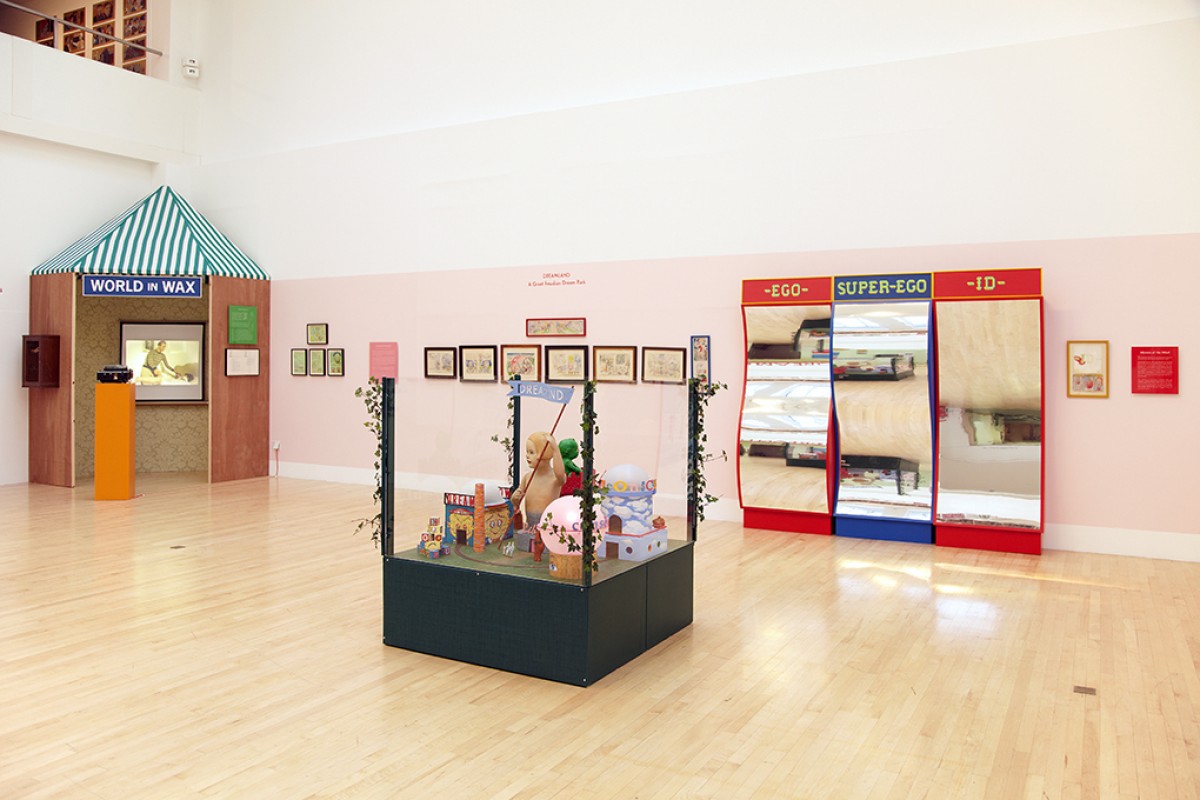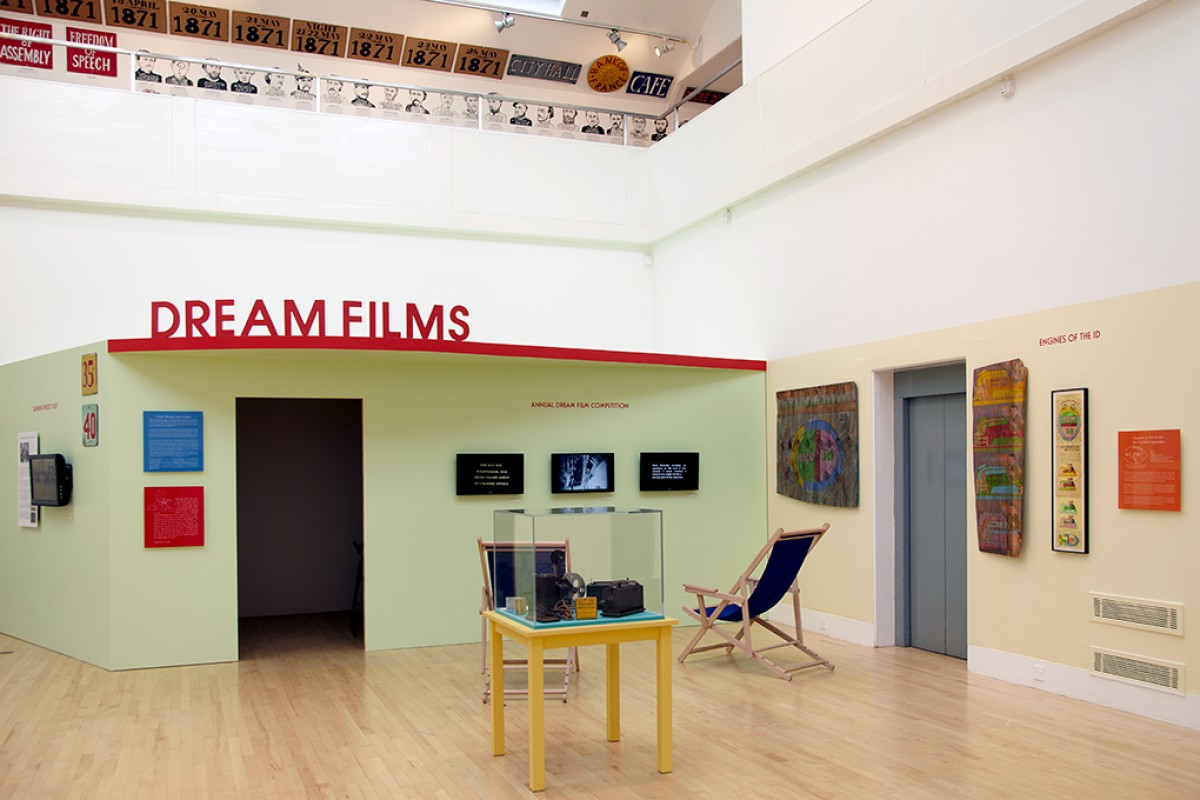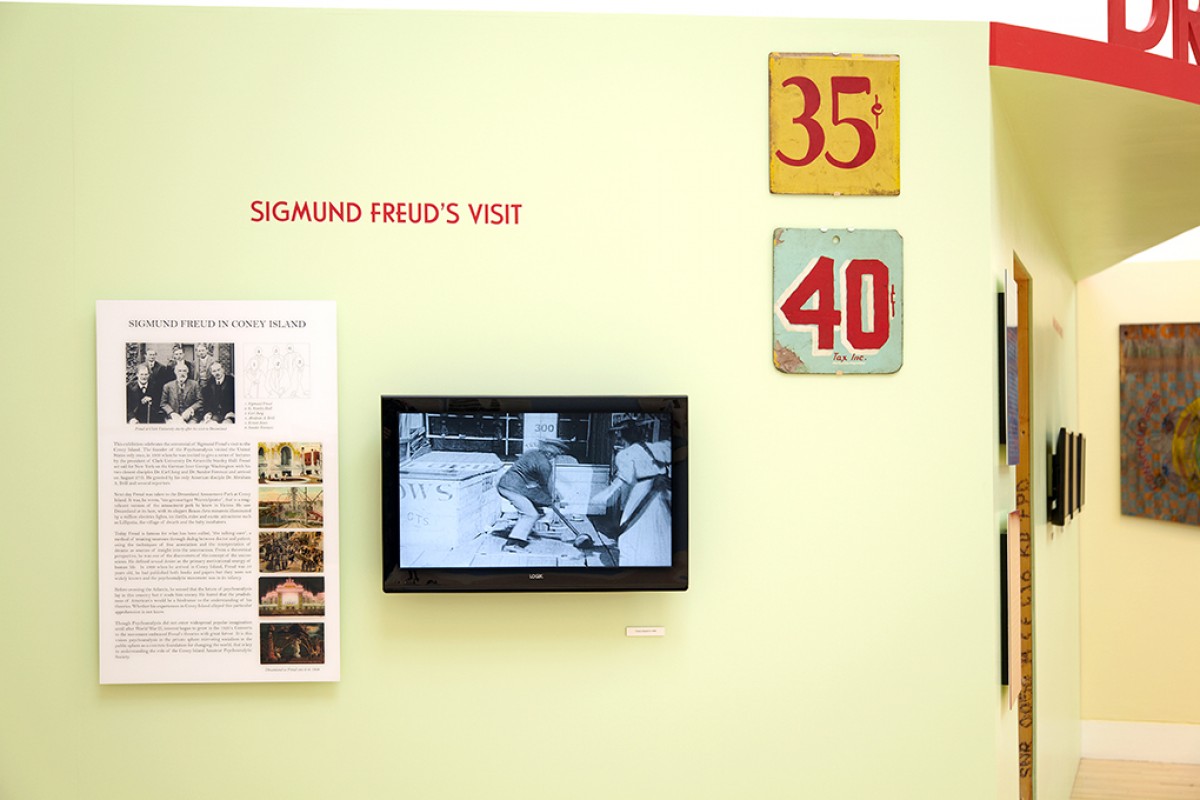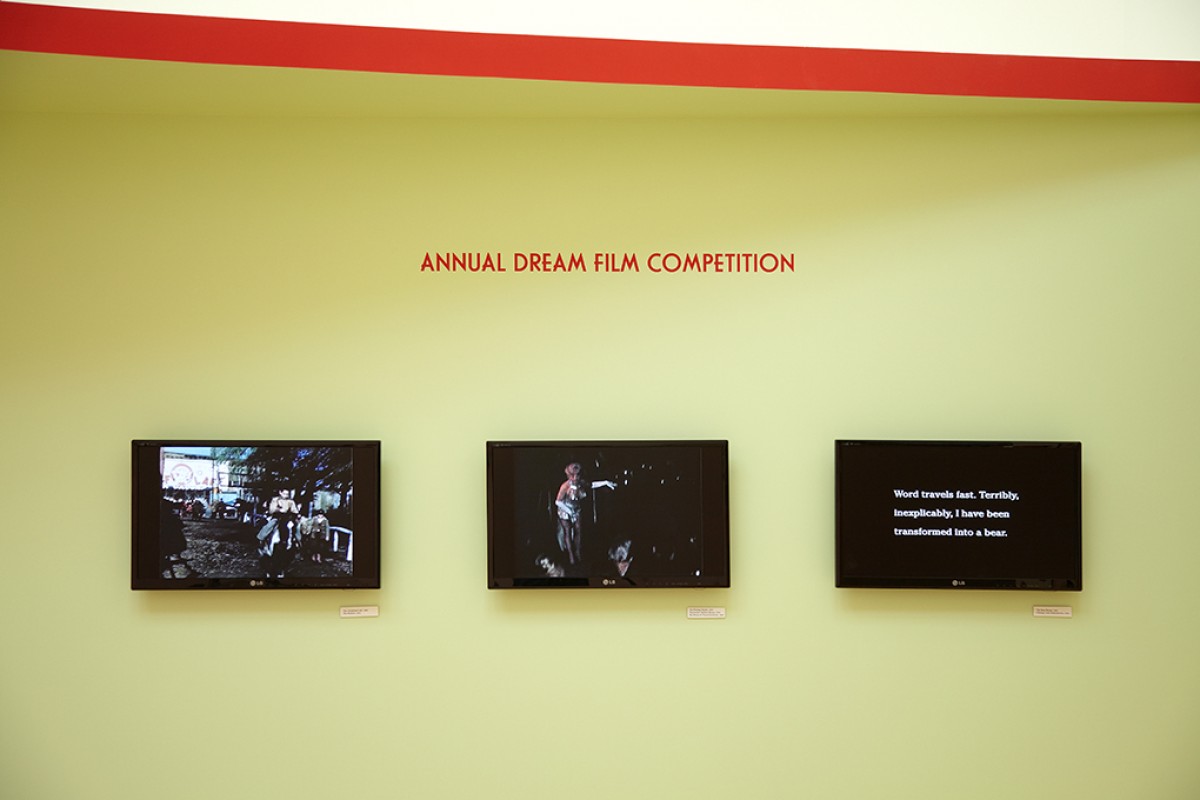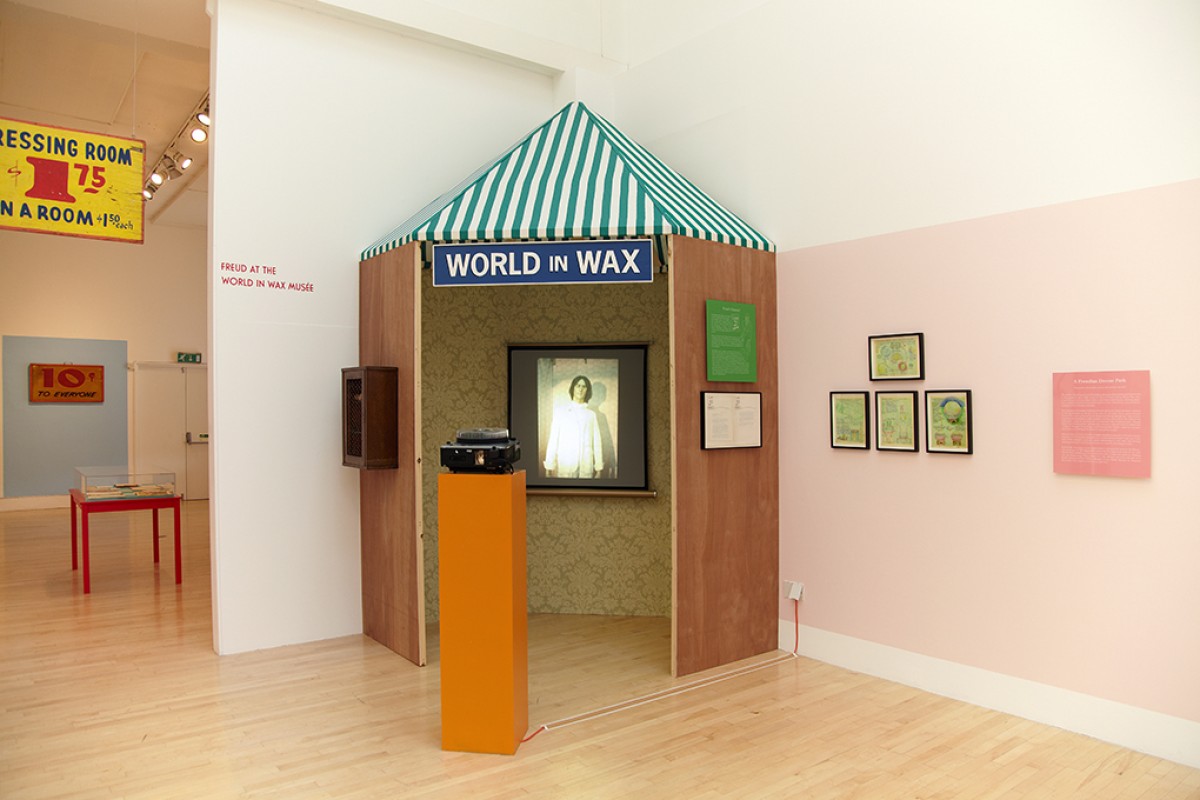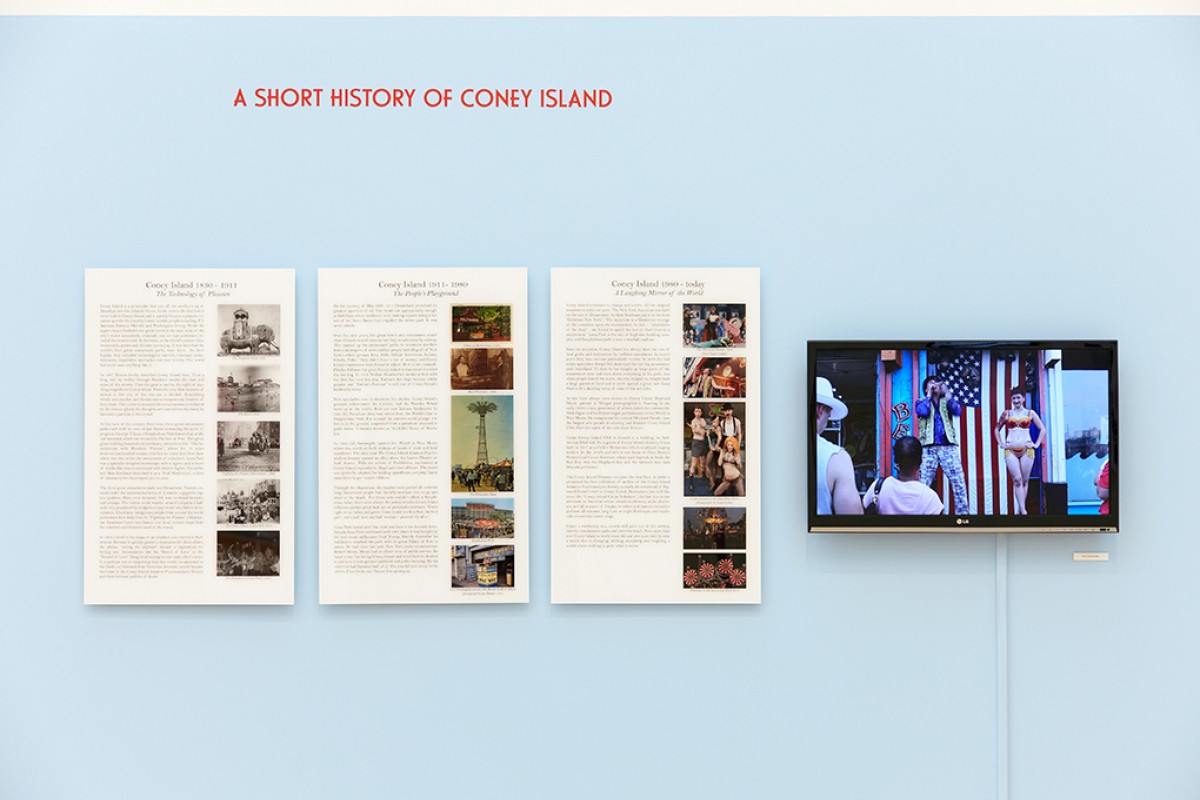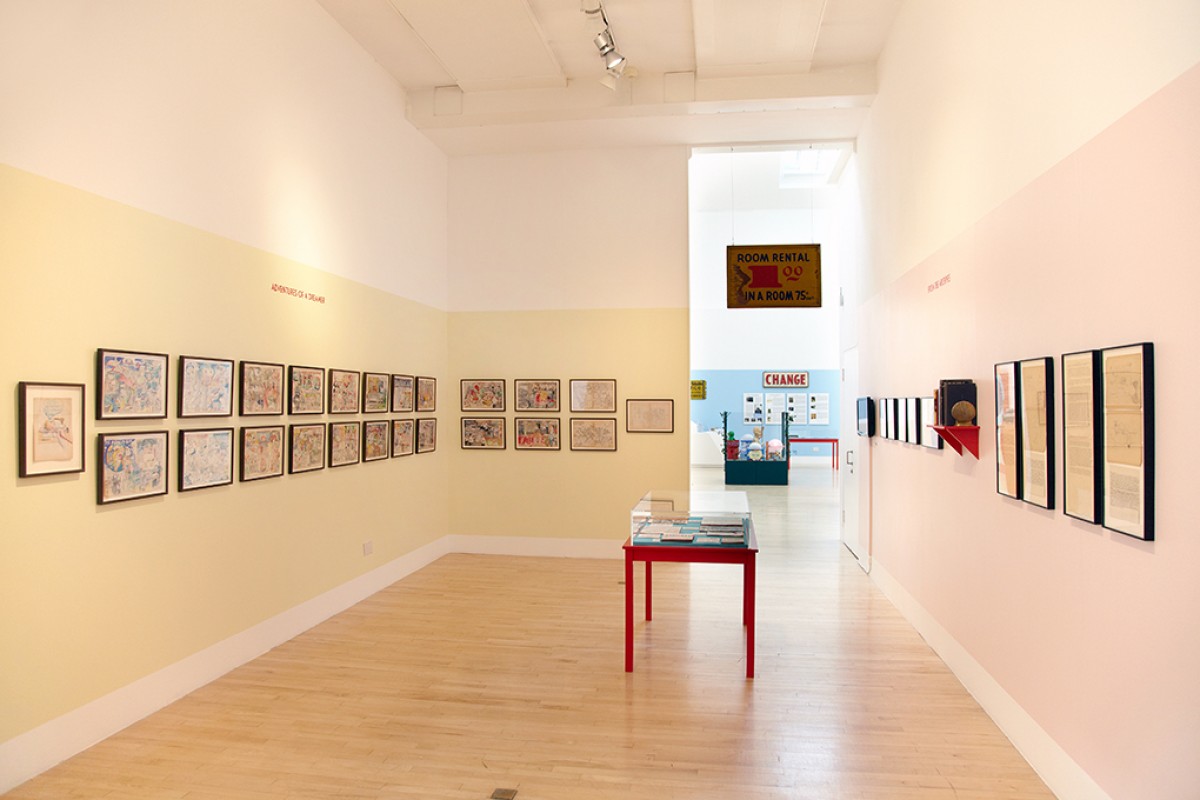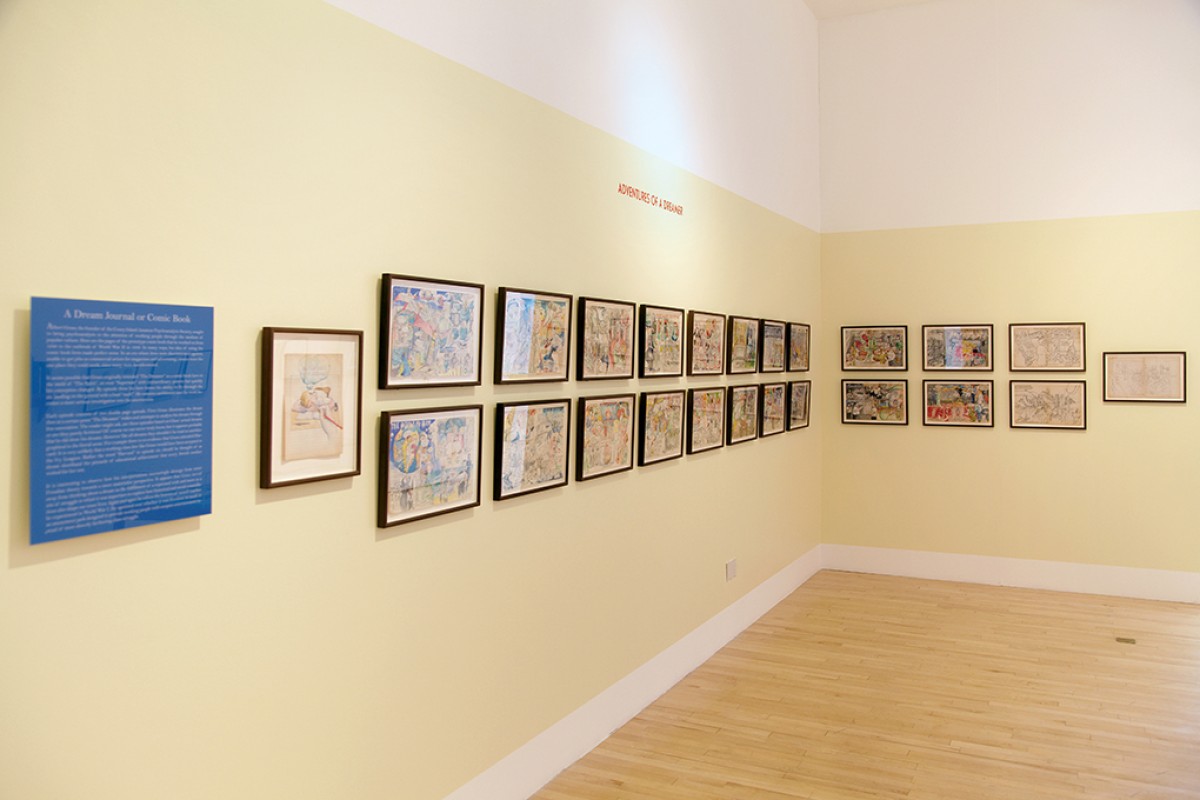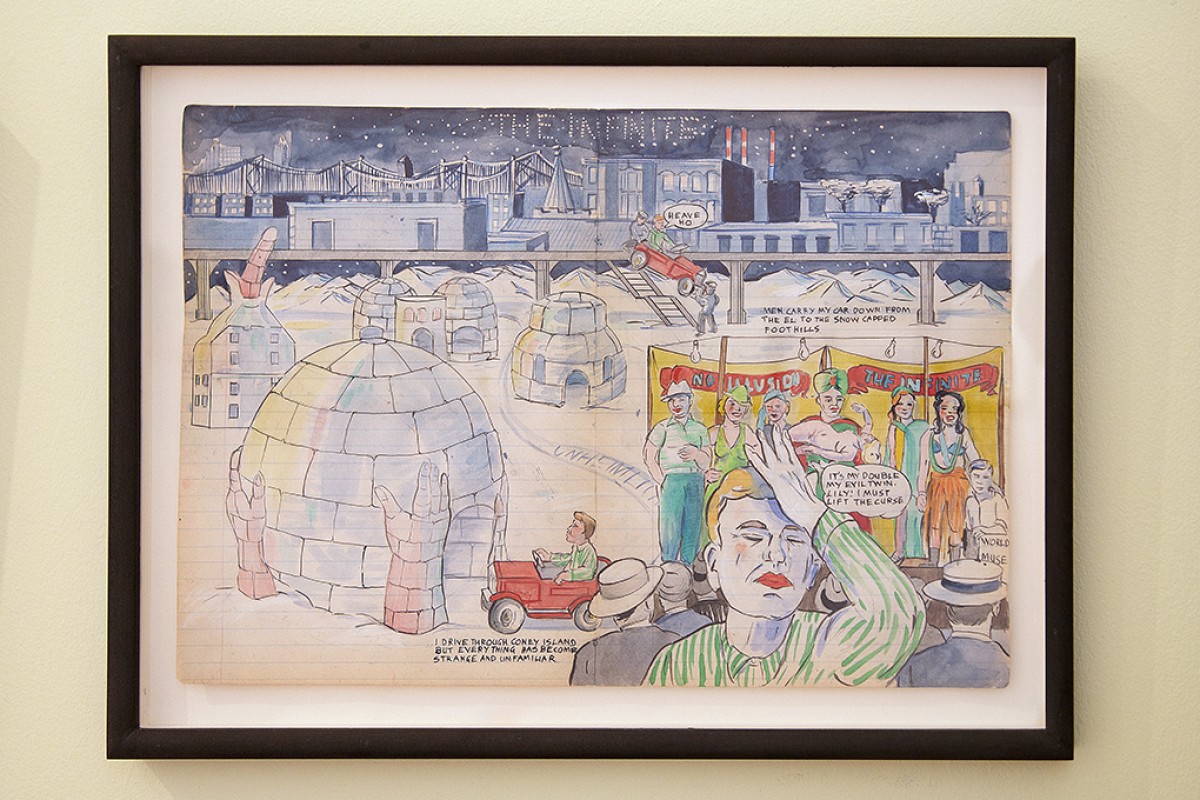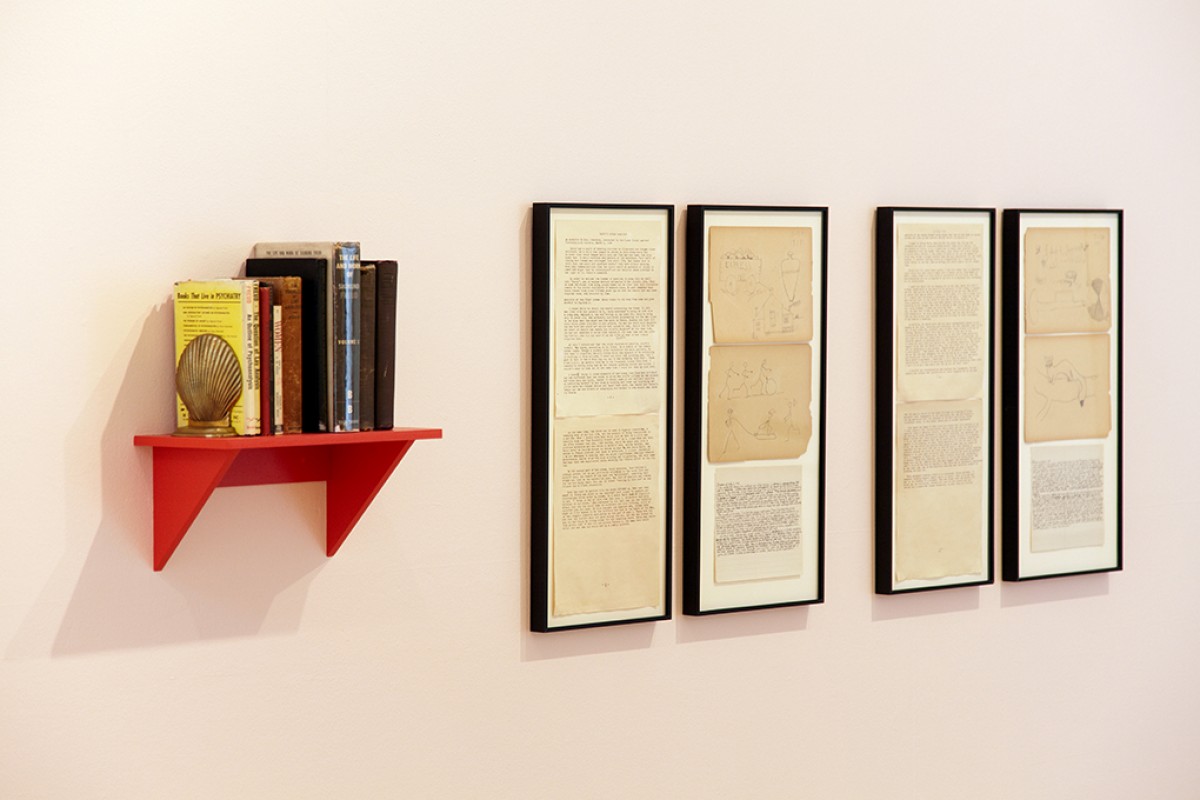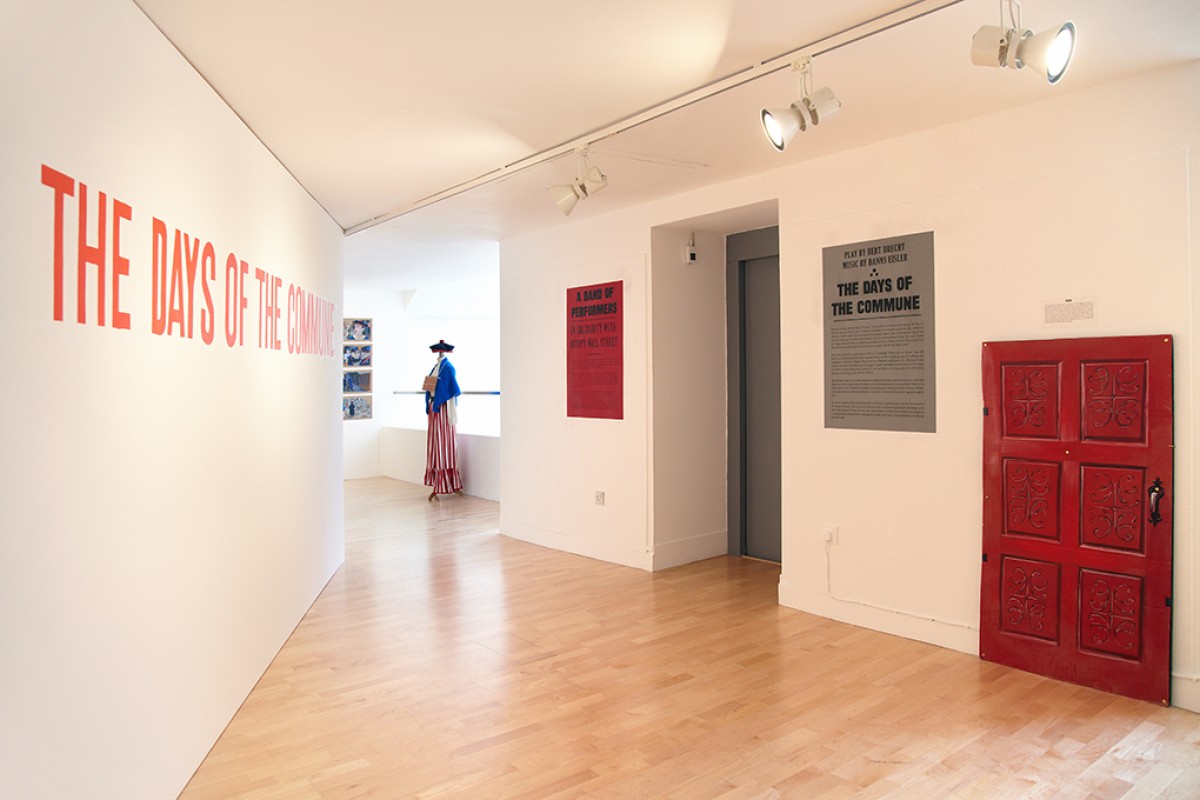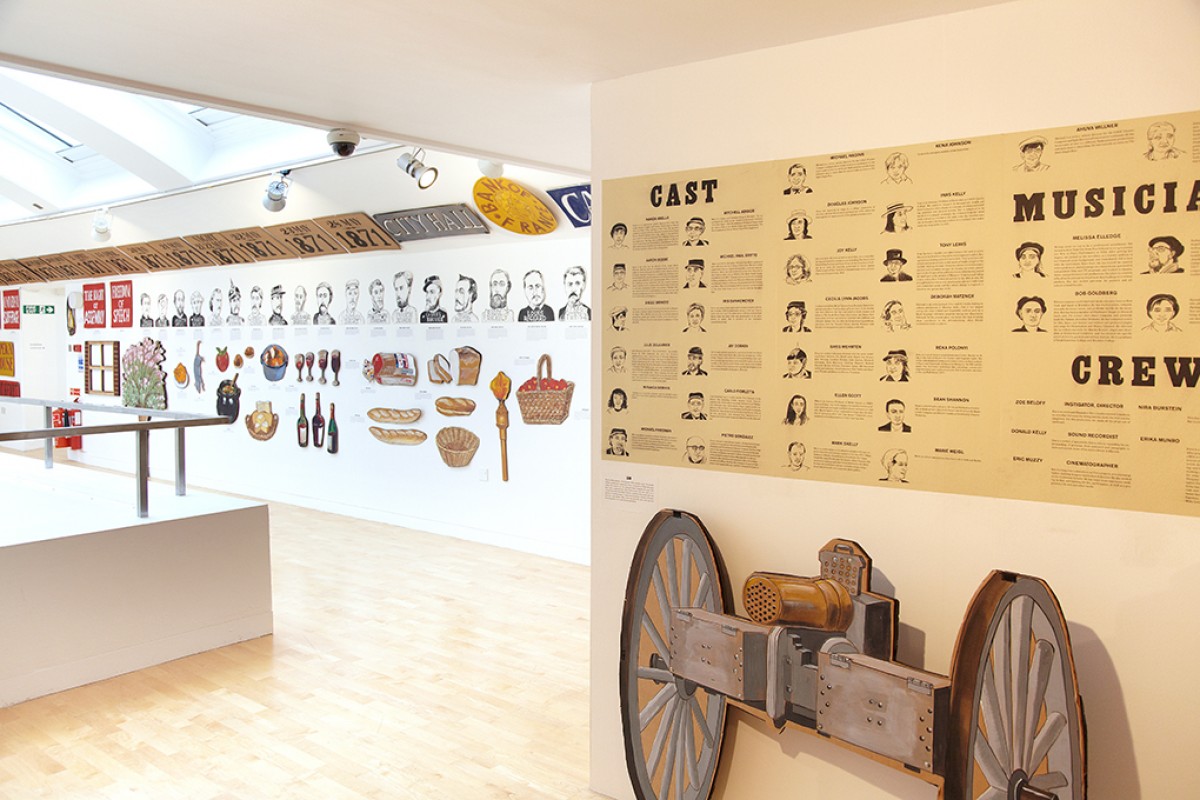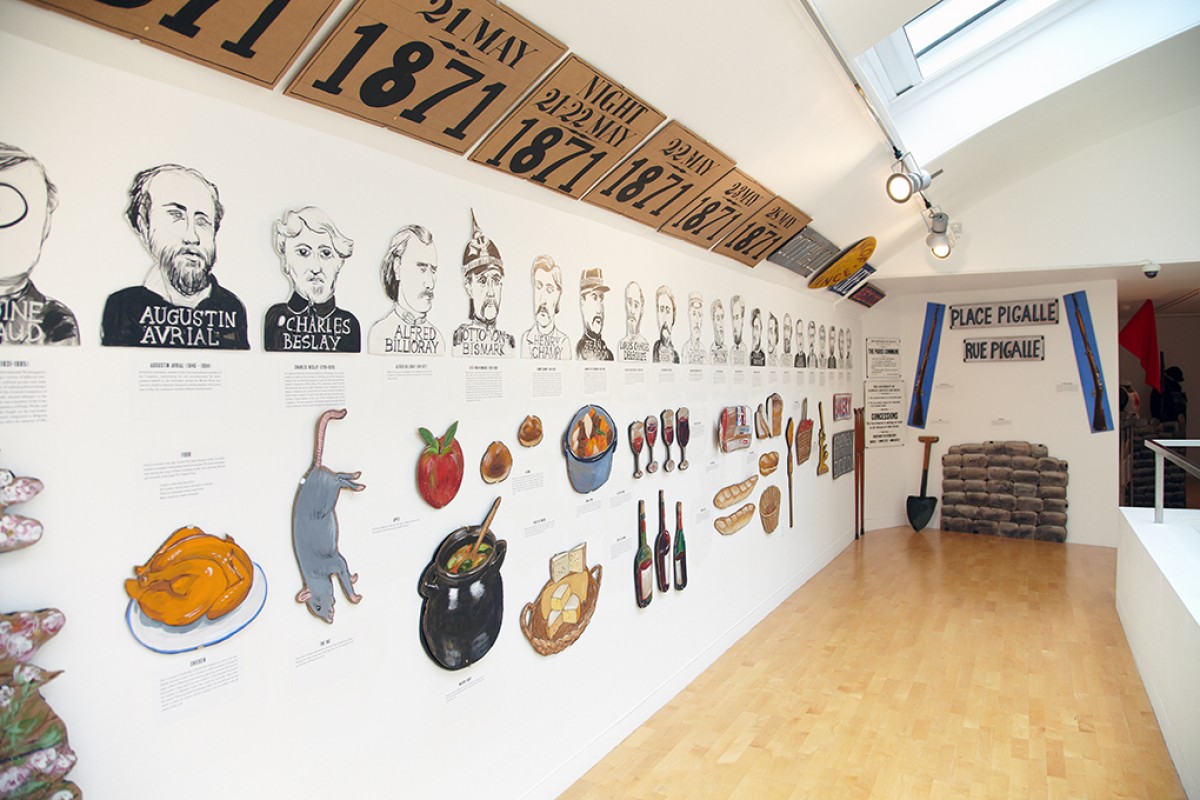Zoe Beloff / A History of Dreams Remains to be Written
-

Zoe Beloff grew up in Edinburgh and studied at Edinburgh College of Art before moving to New York where she has lived and worked since 1980. 'A History of Dreams Remains to be Written' is her first solo-exhibition in Scotland.
For the exhibition the Gallery space will be transformed into 'Dreamland', a Freudian Funfair complete with a House of Mirrors, a projection booth showing a selection of ‘dream films’ and a scale model of an unrealised theme park inspired by Sigmund Freud’s visit to Coney Island in 1909. Freud’s visit had a significant impact, prompting the formation of the Coney Island Amateur Psychoanalysts, a society of which Beloff claims to be archivist and last surviving member.
Working with a wide range of media including film, found objects, installation and drawing, Beloff consciously allows the boundaries between historical fact and creative interpretation to blur, leaving the viewer to reflect upon what really happened and what might have been.
‘I travel back to the past and explore the world of the imagination’… ‘I feel like I’m a medium, and the voices of the past speak through me. I don’t make it up, I try to conjure it up’. Zoe Beloff.
In the Upper Gallery, 'The Days of the Commune,' a new video work, will be shown for the first time. Following the Occupy Wall Street protests in New York, Beloff restaged a play written by Bertold Brecht about the ‘Fourth French Revolution’ that took place in Paris in 1871. Using a cast of actors from diverse backgrounds, armed with hand-made props, Beloff’s re-enactment links two revolutionary movements, encouraging us to think about the role of the ‘everyman’ in our hopes for a fairer world.
Supported by Year of Creative Scotland 2012.
Exhibition Guide
Published on the occasion of 'Zoe Beloff / A History of Dreams Remains to be Written' at Talbot Rice Gallery, The University of Edinburgh.
Text by James Clegg are available to view below, or download free of charge.
How do dreams and beliefs manifest in reality? This question runs throughout Zoe Beloff’s diverse projects, her approach to filmmaking, political re-enactment and installation, exploring the liminal aspects of the human psyche as it enters into the world. This exhibition includes two distinct installations linked by Beloff’s interest in what might be described as utopian societies.
They are curious spaces to explore and decipher; the artist is less concerned with documentary accuracy than with thinking about these societies’ potential as a catalyst for change. The title of this exhibition is derived from the critic Walter Benjamin (1892–1940), who suggested that even dreams are a product of particular social and cultural environments and, moreover, that there is so much to learn.
'Dreamland' - Main Gallery
Zoe Beloff sees herself as the archivist for the Coney Island Psychoanalytic Society and its Circle, which some might think of as an urban myth. Since 2009 she has used it as a form to explore the unconscious of one of world’s great amusement parks Coney Island in Brooklyn is best known as a holiday resort; it included Dreamland, the first enclosed amusement park and by the early 20th century claimed to be a repository for American desires, including both family entertainment and lurid fantasies (and clandestine sexual activity).
Albert Grass, founder of the Psychoanalytic Society,was influenced by the writings of Sigmund Freud,who visited Coney Island in 1909. Grass led the society to make and analyse ‘dream films’, recreations of member’s dreams. Grass also campaigned to have the theme park rebuilt after it was destroyed by fire in 1911 and put forward designs based upon his own interests. In the words of the owner of the attractions, the designs were too “prurient” to be realised: one of the mainpavilions, Libido, is shaped like a young girl.
'The Days of the Commune' – Upstairs
For a three month period in 1871 Paris was governed independently; a unique historic moment where working class people took over the government of the city. Bertolt Brecht (1898–1956) wrote a play about this significant event called The Days of the Commune (circa 1948). As is typical of Brecht, being a long term believer that theatre should activate its audience, the play was written to encourage people to relate to the actions of the main protagonists, who were depicted as ‘everyday’ people rather than abstract heroic types. From spring 2012, Beloff restaged Brecht’s play in Zuccotti Park, New York.
The performers, some drawn from Occupy Wall Street supporters who were based there,came from a range of professions and backgrounds, just like the original revolutionaries. Significant historical events were portrayed, day by day, according to the timescale of the real 1871 commune, with hand drawn props made by the artist. Beloff’s project is a reminder that idealistic aspirations can be realised, even if for a short amount of time, and she encourages us to think about the nature and possibility of our own hopes for a fairer world. Zoe Beloff was born in Edinburgh, studied at Edinburgh College of Art and then moved to New York in 1980 where she continues to live and work.


